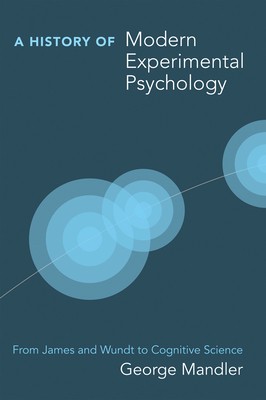
- We will send in 10–14 business days.
- Author: George Mandler
- Publisher: Bradford Book
- ISBN-10: 026251608X
- ISBN-13: 9780262516082
- Format: 13.3 x 19.5 x 1.6 cm, minkšti viršeliai
- Language: English
- SAVE -10% with code: EXTRA
Reviews
Description
The evolution of cognitive psychology, traced from the beginnings of a rigorous experimental psychology at the end of the nineteenth century to the cognitive revolution at the end of the twentieth, and the social and cultural contexts of its theoretical developments.Modern psychology began with the adoption of experimental methods at the end of the nineteenth century: Wilhelm Wundt established the first formal laboratory in 1879; universities created independent chairs in psychology shortly thereafter; and William James published the landmark work Principles of Psychology in 1890. In A History of Modern Experimental Psychology, George Mandler traces the evolution of modern experimental and theoretical psychology from these beginnings to the cognitive revolution of the late twentieth century. Throughout, he emphasizes the social and cultural context, showing how different theoretical developments reflect the characteristics and values of the society in which they occurred. Thus, Gestalt psychology can be seen to mirror the changes in visual and intellectual culture at the turn of the century, behaviorism to embody the parochial and puritanical concerns of early twentieth-century America, and contemporary cognitive psychology as a product of the postwar revolution in information and communication.
After discussing the meaning and history of the concept of mind, Mandler treats the history of the psychology of thought and memory from the late nineteenth century to the end of the twentieth, exploring, among other topics, the discovery of the unconscious, the destruction of psychology in Germany in the 1930s, and the relocation of the field's center of gravity to the United States. He then examines a more neglected part of the history of psychology--the emergence of a new and robust cognitive psychology under the umbrella of cognitive science.
EXTRA 10 % discount with code: EXTRA
The promotion ends in 23d.10:36:42
The discount code is valid when purchasing from 10 €. Discounts do not stack.
- Author: George Mandler
- Publisher: Bradford Book
- ISBN-10: 026251608X
- ISBN-13: 9780262516082
- Format: 13.3 x 19.5 x 1.6 cm, minkšti viršeliai
- Language: English English
Modern psychology began with the adoption of experimental methods at the end of the nineteenth century: Wilhelm Wundt established the first formal laboratory in 1879; universities created independent chairs in psychology shortly thereafter; and William James published the landmark work Principles of Psychology in 1890. In A History of Modern Experimental Psychology, George Mandler traces the evolution of modern experimental and theoretical psychology from these beginnings to the cognitive revolution of the late twentieth century. Throughout, he emphasizes the social and cultural context, showing how different theoretical developments reflect the characteristics and values of the society in which they occurred. Thus, Gestalt psychology can be seen to mirror the changes in visual and intellectual culture at the turn of the century, behaviorism to embody the parochial and puritanical concerns of early twentieth-century America, and contemporary cognitive psychology as a product of the postwar revolution in information and communication.
After discussing the meaning and history of the concept of mind, Mandler treats the history of the psychology of thought and memory from the late nineteenth century to the end of the twentieth, exploring, among other topics, the discovery of the unconscious, the destruction of psychology in Germany in the 1930s, and the relocation of the field's center of gravity to the United States. He then examines a more neglected part of the history of psychology--the emergence of a new and robust cognitive psychology under the umbrella of cognitive science.


Reviews